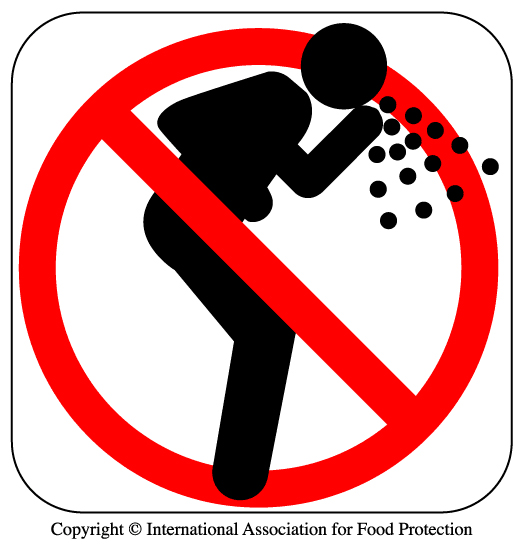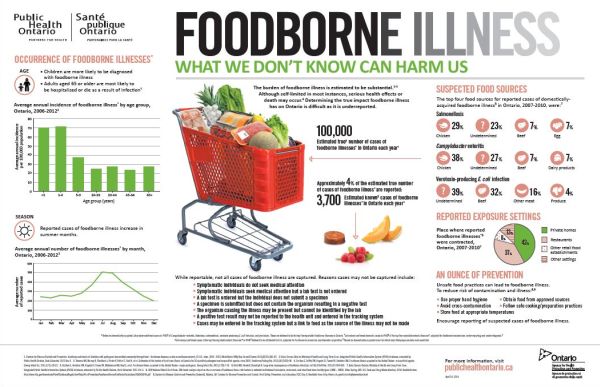Causes of Foodborne Illness
Foodborne illness (food poisoning) often happens after improper handling, preparation, or storage of food. Safe food handling can help prevent foodborne illnesses.
Common causes of foodborne illnesses:
See additional common causes of food poisoning on the Government of Canada's web page.
Outbreaks
A foodborne outbreak is where a number of people become sick with a similar illness after eating a common food. Any time food makes a group of people sick, Public Health Inspectors investigate to try and find out what caused the illness. The faster an outbreak can be identified, the better chance there is to find out what food made the people sick and what can be done to prevent illness in the future.
To report a suspected case of foodborne illness (food poisoning) or an outbreak, contact a Public Health Inspector on the Environmental Health Team at:
Don't be a source of foodborne illness!
Do not prepare food or drinks for others if you are sick with diarrhea and/or vomiting. You can easily contaminate the food and drinks that you touch, and the people who eat them can become sick.
Food workers who prepare food while sick are often linked to foodborne illness outbreaks in restaurants and other retail food establishments.
Food handlers who are sick with diarrhea and/or vomiting need to remain off work until they have been symptom-free for at least 48 hours.
Additional Information
Read more about foodborne illnesses (food poisoning):
To speak to a Public Health Inspector on the Environmental Health Team about foodborne illnesses or to report a foodborne illness, please call:

